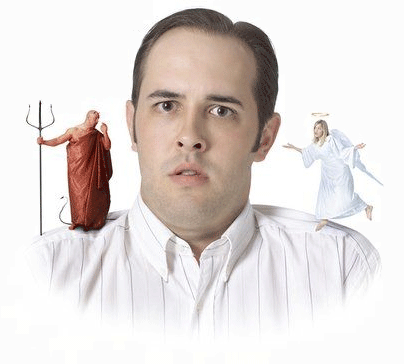I enjoyed reading the first part of Faust. I enjoyed the story line after I understood what was going on. What I had a hard time with was understanding the language in the text. The way it is written reminds me how Shakespearean plays are written. I always have had a hard time understandinding old english, and I therefore had a hard time understanding this play. So, I put down the book, went to sparknotes, and then picked the book back up, started fromn the beginning, and was then able to understand what was going on a bit more then when I started to read it cold.
What I especially like about the story is that its main character Faust is a moral character but is constantly being tempted by the devil to be immoral. I enjoy seeing that Faust does genuinely try to be moral, but ends up doing the wrong thing, at somebody else's expense. I am interested to see how his character is going to develope in part two. I want to see if he will get back in touch with his moral side and deny the devil or if he will allow himself to be persuaded into doing more evil acts that someone else will have to suffer for.

This is exactly the picture that came to my head while reading the first part of Faust. I believe that Faust has a moral side, but I believe that he is easily persuaded by the devil. For example Faust felt bad when he learned Gretchen was in jail because of what Faust and the Devil did. Gretchen did not kill her brother Valentine, Faust and the Devil did. So even though Faust is moral and felt bad and therefore tried to rescue Gretchen, this scene demonstrates how easily Faust is persuaded by the devil because it was Faust's fault why she was in jail in the first place.
What I especially like about the story is that its main character Faust is a moral character but is constantly being tempted by the devil to be immoral. I enjoy seeing that Faust does genuinely try to be moral, but ends up doing the wrong thing, at somebody else's expense. I am interested to see how his character is going to develope in part two. I want to see if he will get back in touch with his moral side and deny the devil or if he will allow himself to be persuaded into doing more evil acts that someone else will have to suffer for.

This is exactly the picture that came to my head while reading the first part of Faust. I believe that Faust has a moral side, but I believe that he is easily persuaded by the devil. For example Faust felt bad when he learned Gretchen was in jail because of what Faust and the Devil did. Gretchen did not kill her brother Valentine, Faust and the Devil did. So even though Faust is moral and felt bad and therefore tried to rescue Gretchen, this scene demonstrates how easily Faust is persuaded by the devil because it was Faust's fault why she was in jail in the first place.
I think it's important to analyze why Faust would have given into the devil so easily and so often. I agree, I think he was trying to be moral but ultimately failed by the persuasion of the devil. It's kind of hard to understand why he would have given in to the devil, especially considering his religious knowledge and beliefs that understood the devil to represent all things evil, and knowing that by making a deal with the devil he would be eternally indebted to him. For me, it was helpful to think of instances in history where people have been influenced to go against their morals. I have a few in mind, but does anyone else have some examples?
ReplyDeleteI enjoyed your post but I would have to disagree with your statement that Faust is moral. Faust is person who knows the difference between good and evil and consistently choses evil. Just because a person has remorse for what they did does not mean they have the capacity to do good within them, nor does that make them moral. He did not go as far as to ask for forgiveness and after all with his gift of free will he alined himself with the devil over God who granted him that choice.
ReplyDeleteI think I'm going to have to agree with Nick here, because that is what came to my mind when I was reading the post. Faust definitely has the capacity to be moral, but he lets his selfish desire for pleasure override any moral tendancies he has. As an intelligent person, Faust realizes that human life is never happy one hundred percent of the time, but he seems to care about more about achieving personal happiness than morality. Granted, the devil was in his ear telling him to do these horrid things, so I must place blame where it is due, but all the same he ignored his conscience blatantly at times. Also, Nick made a fantastic point; Faust, for all of his "morality" never even showed remorse enough to as for forgiveness for his actions. I do not believe that is the sign of a truly moral man.
ReplyDeleteThe photo you included in your post more strongly reminded me of Christopher Marlowe's version of the Faust legend where he incorporates a Good and an Evil Angel that literally try to sway Dr. Faustus in their respective directions. In my opinion, in Goethe's version Faust does have a decisions to make between good and evil, but he makes them on his own, unlike Dr. Faustus who had some sense of guidance towards what was right. Check out my blog post about the summaries of the different versions of the Faust legend to see what I'm referring to.
ReplyDelete